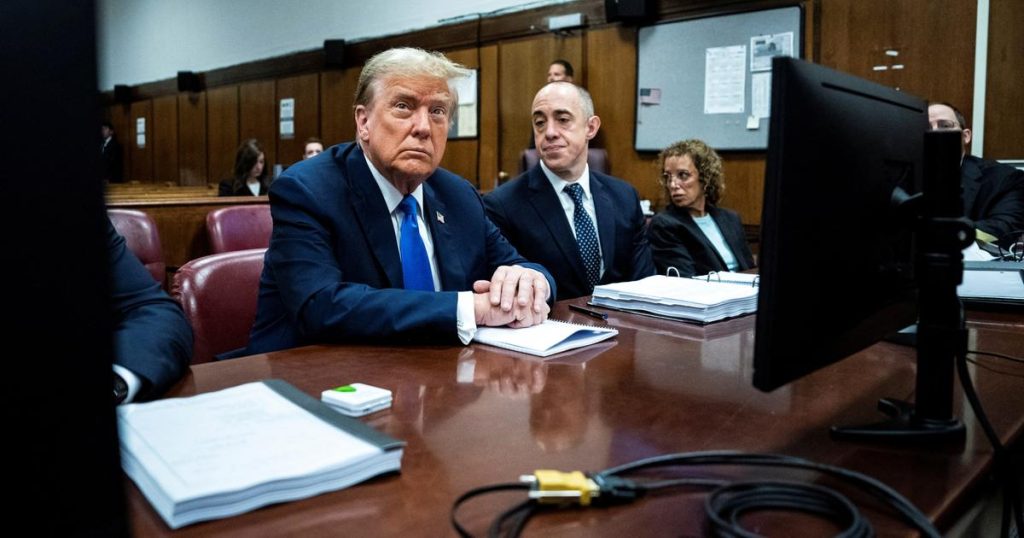Jabin Botsford / REUTERS
A juror expressed her fears, saying she had been recognized by relatives, even though the jury is supposed to be anonymous to avoid pressure.
One juror who throws in the towel, another chosen then finally eliminated: the New York court, which judges Donald Trump during a historic trial, resumed on Thursday the laborious work of selecting an impartial jury ready to resist the pressures. Judge Juan Merchan has set himself the goal of being able to bring together this jury, twelve New York citizens and six alternates, before the end of the week, to enter into the heart of the debates on Monday.
But at midday Thursday, the court had two fewer jurors, making five in total. First, a first juror expressed her fears of being identified, saying she had been recognized by relatives, while the jury is supposed to remain anonymous to avoid pressure. A little later, the judge “excuse” another jury member, who prosecutors said they discovered after research may not have told the whole truth when responding to the lengthy questionnaire given to each potential juror.
Anonymity
These first snags raise the question of guaranteeing the anonymity of jurors throughout the trial, while Donald Trump has lamented several times about being judged in New York, a Democratic stronghold.
The Republican candidate, who denounces a “political persecution”took up on Wednesday, on the Truth Social network, the comments of a Fox News host, Jesse Watters, assuring without proof that“They are choosing undercover progressive activists who lie to the judge to serve on the jury”. The prosecution and the defense have the possibility of challenging ten jurors each, without providing justification. The judge has already banned Donald Trump from attacking jurors on social networks.
After these incidents, their number went from 7 to 5, out of 12 required, not counting the 6 necessary substitutes. The first former president in the history of the United States to appear in criminal court, Donald Trump is on trial in a case of hidden payments to buy the silence of a former porn star, Stormy Daniels, a few days before the 2016 election that he won narrowly against Democratic candidate Hillary Clinton.
Life scrutinized
The potential jurors, anonymous citizens plunged overnight into a historic affair, find their lives scrutinized. They must answer a long questionnaire on their professions, family situation, sources of information, centers of interest, and their opinion on Donald Trump, but also to even more detailed questions from the prosecution or the defense, which has tracked down any sign of possible bias against the defendant, particularly in their publications on social networks. This ballet continues on Thursday.
More than three years after leaving the White House in chaos, Donald Trump theoretically faces a prison sentence. This would not prevent him from being a candidate in the presidential election on November 5, where he dreams of revenge on Joe Biden, but would project the campaign into the unknown. If he were found not guilty, however, it would be a major success for the Republican candidate.
Especially since he managed through appeals to postpone his three other criminal trials, two for illicit attempts to reverse the results of the 2020 election, and one for supposedly casual handling of classified documents. In the trial that began Monday, Donald Trump is charged with falsifying accounting documents from his company, the Trump Organization, which allegedly aimed to hide, under cover of “legal costs”the payment of $130,000 to Stormy Daniels by her personal lawyer at the time, Michael Cohen.
In exchange, the former X-rated movie star agreed to keep quiet about a sexual relationship with the billionaire in 2006. Donald Trump has always denied this relationship and his defense ensures that the payments were in the private sphere. But prosecutor Alvin Bragg intends to demonstrate that these are indeed fraudulent maneuvers to hide information from voters a few days before the vote.
